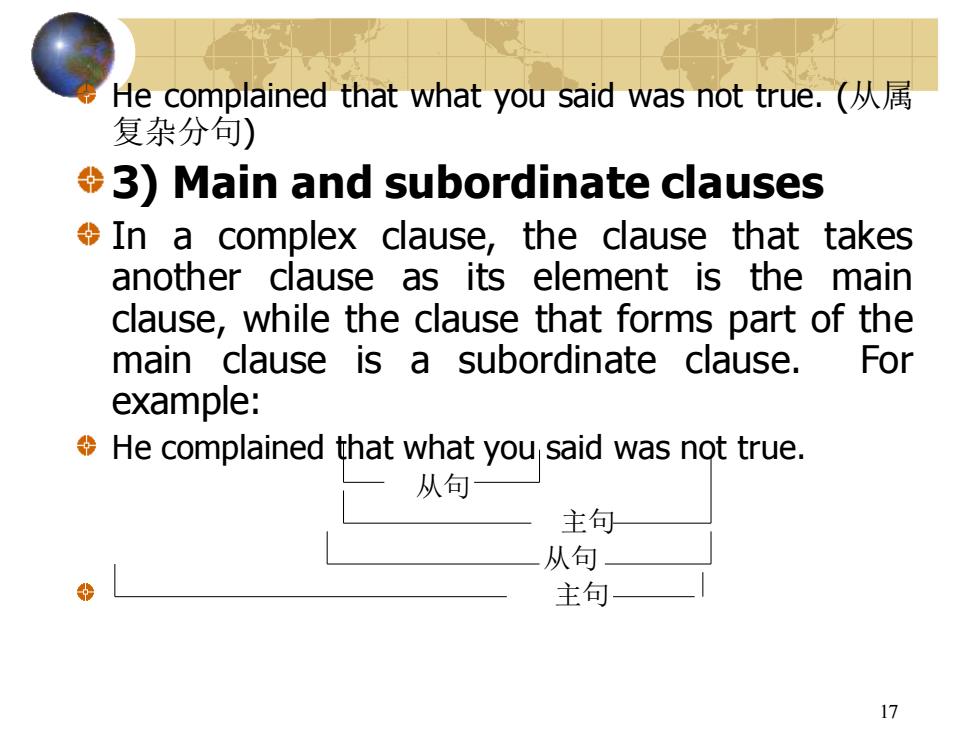
clause)His new book will soon come out.It is on grammar. (D clause)His new book that will soon come out is on grammar. 2)Simple and complex clauses When a clause consists of only one construction of "subject predicate",it is a simple clause.An independent simple clause is at the same time a simple sentence.For example: It is not true.(独立简单分句/简单句) When a clause comprises another clause or other clauses as its element or elements,it is a complex clause.An independent complex clause is at the same time a complex sentence.For example: What you said is not true.(独立复杂分句/复杂句) He said that is was not true.(从属简单分句) 16
16 (I clause) His new book will soon come out. It is on grammar. (D clause) His new book that will soon come out is on grammar. 2) Simple and complex clauses When a clause consists of only one construction of "subject + predicate", it is a simple clause. An independent simple clause is at the same time a simple sentence. For example: It is not true. (独立简单分句/简单句) When a clause comprises another clause or other clauses as its element or elements, it is a complex clause. An independent complex clause is at the same time a complex sentence. For example: What you said is not true. (独立复杂分句/复杂句) He said that is was not true. (从属简单分句)

He complained that what you said was not true. 复杂分句) 3)Main and subordinate clauses In a complex clause,the clause that takes another clause as its element is the main clause,while the clause that forms part of the main clause is a subordinate clause.For example: He complained that what you said was not true. 从句 主句 从句 主句 1
17 He complained that what you said was not true. (从属 复杂分句) 3) Main and subordinate clauses In a complex clause, the clause that takes another clause as its element is the main clause, while the clause that forms part of the main clause is a subordinate clause. For example: He complained that what you said was not true. 从句 主句 从句 主句